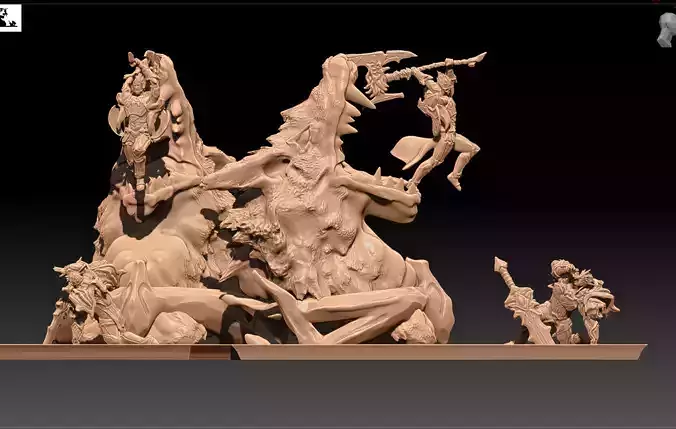1/9
Finishing move of a fight between God King Garen and God King Darius.
Before 2014, players existed in-universe as political leaders, or Summoners, commanding champions to fight on the Fields of Justice—for example, Summoner's Rift—to avert a catastrophic war. Sociologist Matt Watson said the plot and setting were bereft of the political themes found in other role-playing games, and presented in reductive good versus evil terms. In the game's early development, Riot did not hire writers, and designers wrote character biographies only a paragraph long.
In September 2014, Riot Games rebooted the game's fictional setting, removing summoners from the game's lore to avoid creative stagnation. Luke Plunkett wrote for Kotaku that, although the change would upset long-term fans, it was necessary as the game's player base grew in size. Shortly after the reboot, Riot hired Warhammer writer Graham McNeill. Riot's storytellers and artists create flavor text, adding richness to the game, but very little of this is seen as a part of normal gameplay. Instead, that work supplies a foundation for the franchise's expansion into other media, such as comic books and spin-off video games.The Fields of Justice were replaced by a new fictional setting—a planet called Runeterra. The setting has elements from several genres—from Lovecraftian horror to traditional sword and sorcery fantasy.
REVIEWS & COMMENTS
accuracy, and usability.









